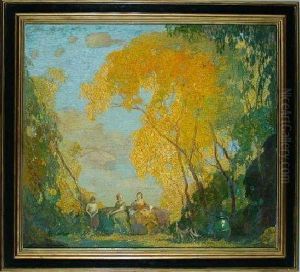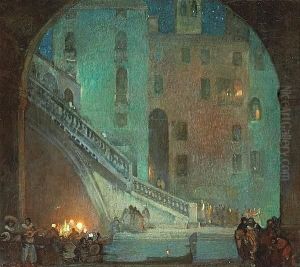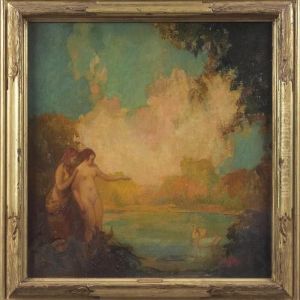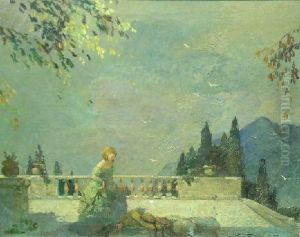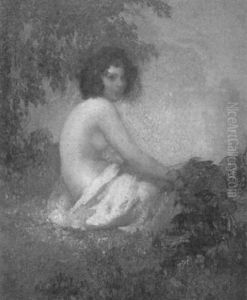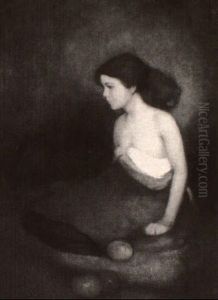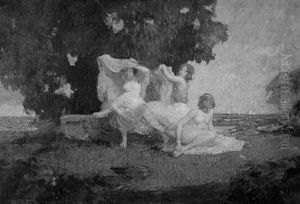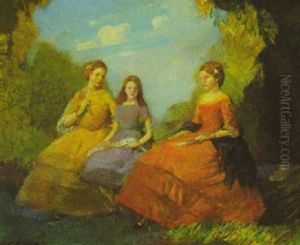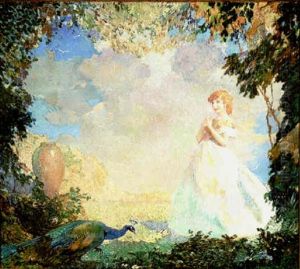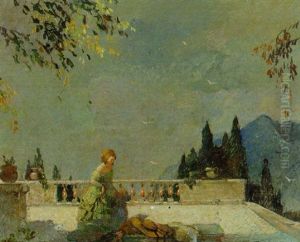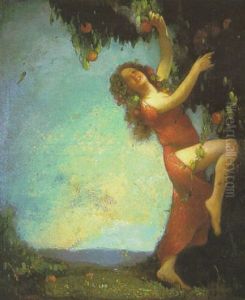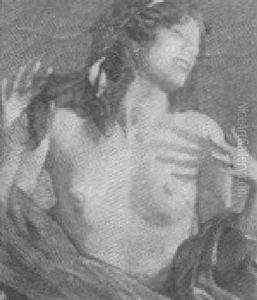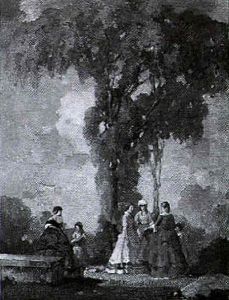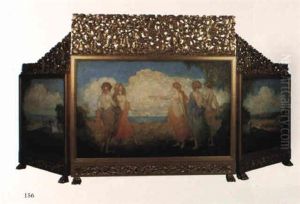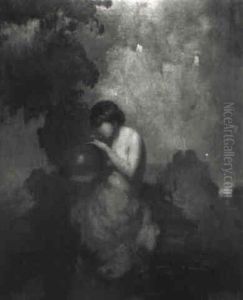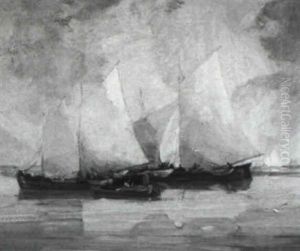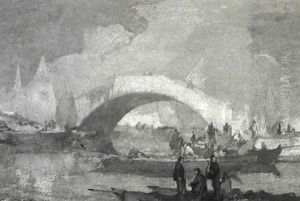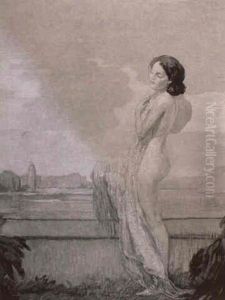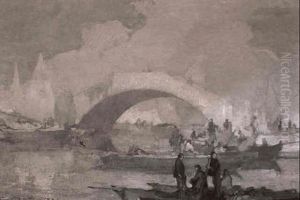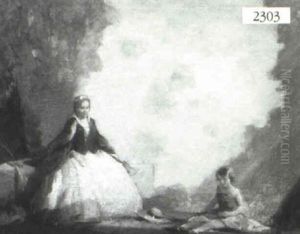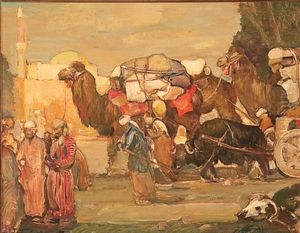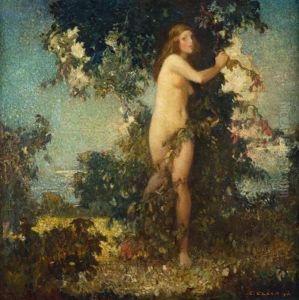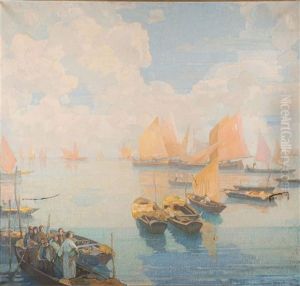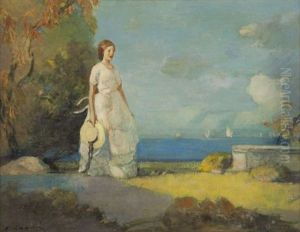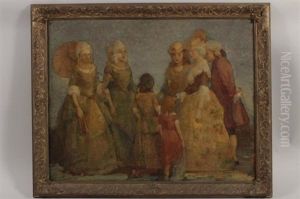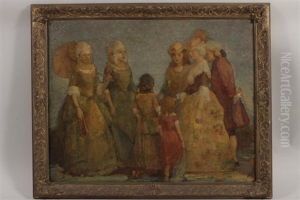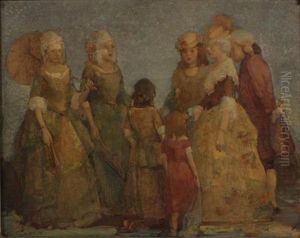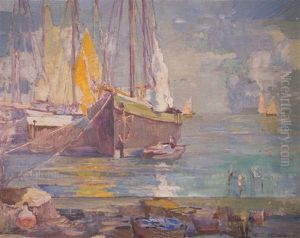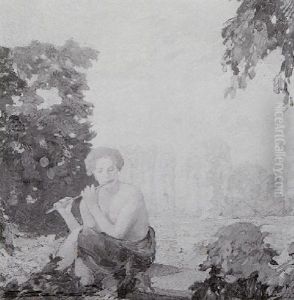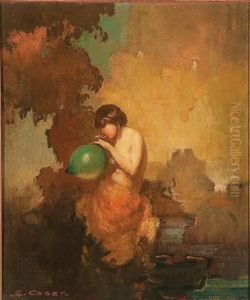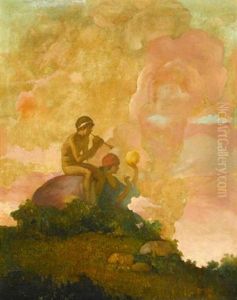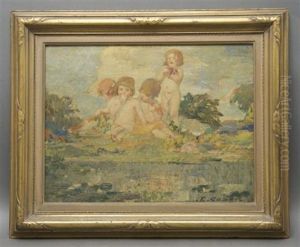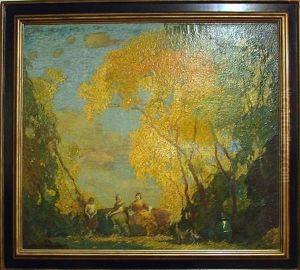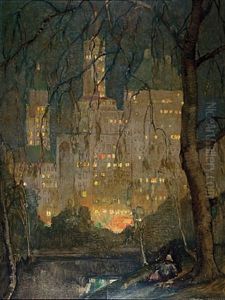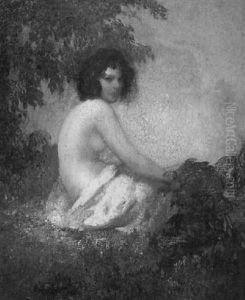Ettore Caser Paintings
Ettore Caser was an Italian artist, born in 1913 in the region of Veneto, Italy. His life and career spanned much of the 20th century, a period marked by significant upheaval and transformation in the art world. Caser's work is less widely known in the broad spectrum of Italian art, yet his contributions to the regional art scene of Veneto and beyond have garnered him a respectable place among the Italian artists of his time.
Caser's artistic journey began in the interwar period, a time when Italy was experiencing tumultuous changes in its social and political fabric. Despite the challenges of the era, including the rise of Fascism and the impact of World War II, Caser managed to develop his artistic voice, influenced by the movements of the time but also deeply personal in its reflection of his experiences and surroundings.
Primarily a painter, Caser's work is characterized by its exploration of color and form. He was adept at capturing the rural landscapes of Veneto, imbuing them with a sense of emotion and depth that transcends their immediate beauty. His landscapes are often seen as a reflection of the Italian soul, capturing the serene and the tumultuous aspects of life in his native land.
Aside from landscapes, Caser also engaged with other subjects, including figure studies and abstract compositions. His approach to these varied themes demonstrates a versatility and a willingness to experiment with different styles and techniques. This adaptability may have contributed to his relative obscurity; without a single, easily identifiable style, Caser's body of work is more challenging to categorize within the broader trends of 20th-century Italian art.
After World War II, Caser, like many artists of his generation, found himself navigating the complexities of a radically changed world. The post-war period was a time of reconstruction and reevaluation of cultural values, and Caser's work from this era reflects a nuanced understanding of these dynamics. His later pieces often contain a more introspective quality, reflecting on the nature of memory, loss, and the passage of time.
Ettore Caser passed away in 1996, leaving behind a legacy that, while perhaps not as celebrated as that of his contemporaries, offers a poignant and deeply human perspective on the Italian experience of the 20th century. His paintings, now held in private collections and occasionally featured in exhibitions dedicated to regional Italian art, continue to offer insights into the landscapes and lives of a bygone era.
